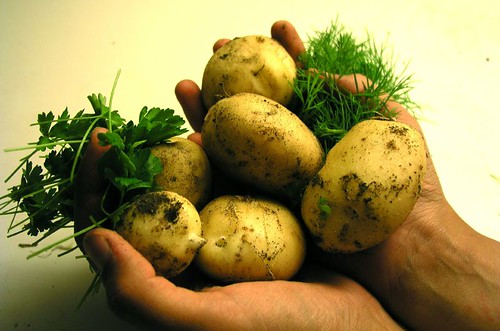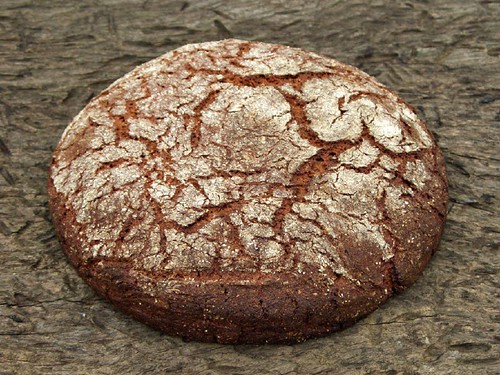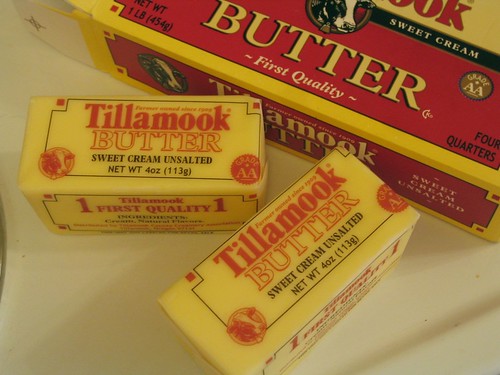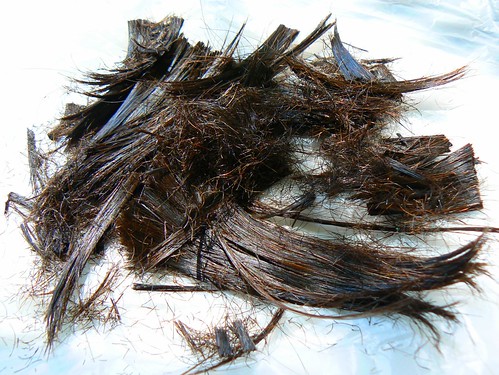 Potatoes, the cursed children of the earth. (Photo by Dr. Hemmert)
Potatoes, the cursed children of the earth. (Photo by Dr. Hemmert) This experiment has been going on for quite a while now, but I haven't written anything about it before. Now that I've proved my
hair hypothesis to be at least partially correct, it's time to explain my diet hypothesis and the accompanying experiment to prove it correct or wrong.
For the past year or so I've been eating a diet that is high in fat, low in complex carbohydrates and moderate or high in protein. The first things I got rid of were bread, pasta and potatoes - the basic elements of the
food pyramid that we are told is the source of all nutritional wisdom. At about the same time I started using more fats, especially saturated animal fats (like butter and cream), which
supposedly are very bad for you. I've also consumed lots of monounsatured fat (like olive oil) but little polyunsaturated fat (like margarine). The next thing to go was rice, which I believe to be
superior to potato and still eat every now and then.
So, instead of eating a low-fat meat stew with potatoes and steamed vegetables, I eat a steak fried in butter and a salad topped with generous amounts of olive oil. And instead of pasta carbonara, I eat an omelette. Fried in butter and topped with olive oil. Did I mention the olive oil already? It is my firm belief that there exists no such dish that cannot be improved upon by adding heaps of olive oil.
My question to all those who favor a low-fat, low-protein diet is that if animal fats and proteins make you fat, clog your arteries and are generally terrible for your health, how is it possible that our ancestors ate them with good appetite and were just fine? Most of the diseases that this low-fat craze is supposed to prevent were caused by following the food pyramid in the first place (just look at the insane recommendations for diabetics).
My hypothesis, then, is that one does not get fat nor otherwise unhealthy by eating animal fats and proteins and cutting down on the oh-so-essential bread, pasta and starchy vegetables such as potato. I'll present some more details later on.
So far, the experiment has gone pretty much as expected. As for weight, I haven't gained any pounds during the year or so - in fact, I've lost a few. I'm 182 cm (half an inch short of 6') tall and currently weigh 62 kilos (137 pounds). My body fat percentage is 7.7, which strongly indicates that eating fat is not the same thing as getting fat. As for cholesterol and other possible measures of health, I'm going to have a blood test taken this week to find out. If they can draw any blood from my bacon-clogged vein, that is!
Go to next post on this experiment
Read More......














